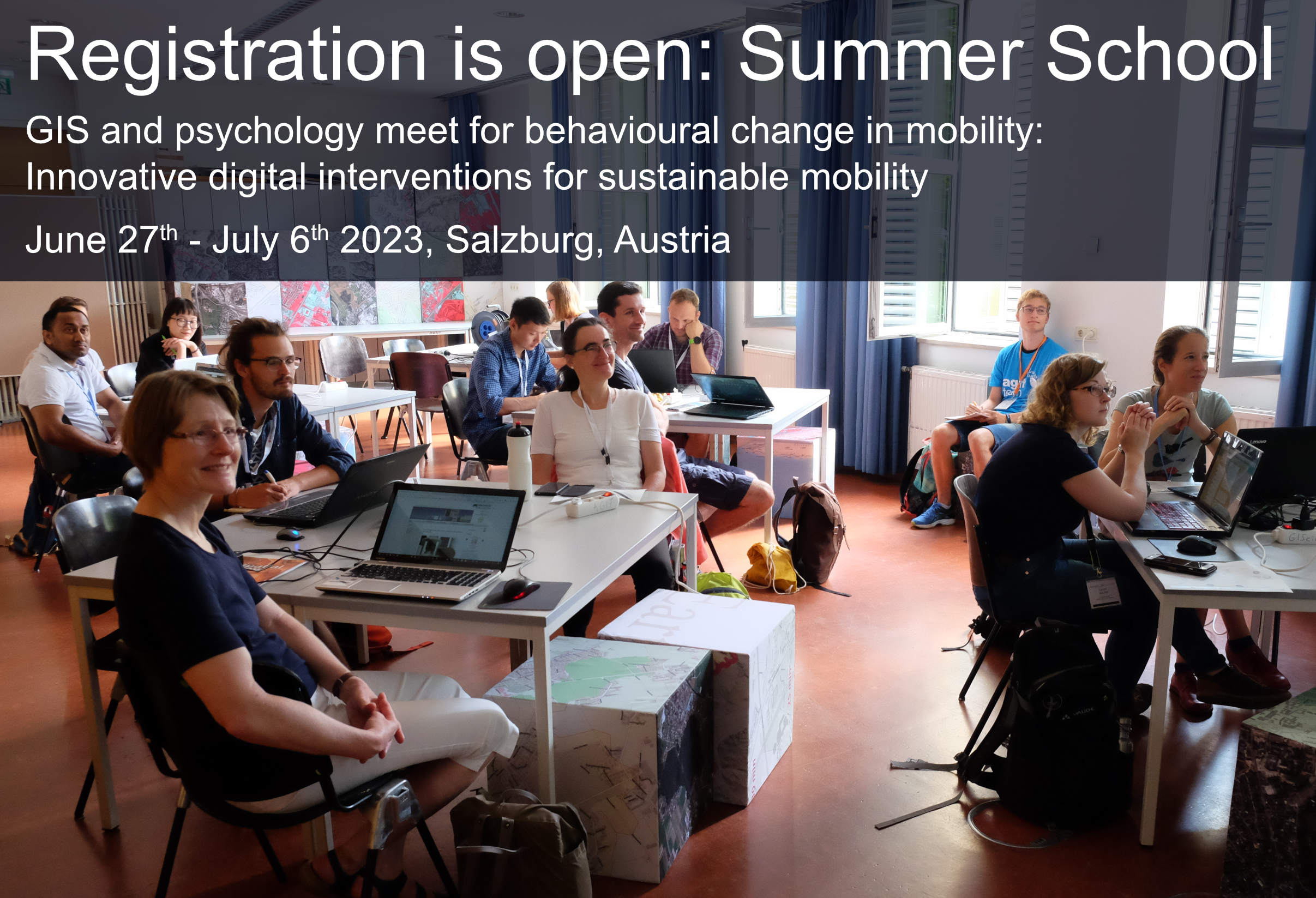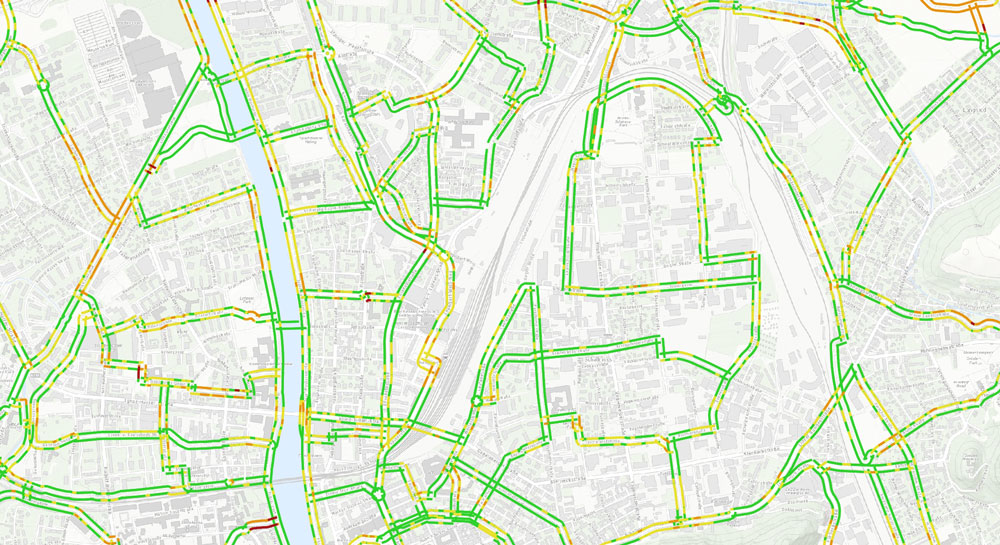
DyMoN Summer School: Registration is open
The Department of Geoinformatics at the University of Salzburg and Salzburg Research, together with the DyMoN project consortium, are organizing a summer school from June 27th to July 6th, 2023. The Summer School is going to take place in Salzburg, Austria and is organized as an on-site event.
The summer school is planned as part of the DyMoN project, which revolves around the development of innovative ways to promote sustainable mobility. The Summer School’s outcomes will inform future research activities within and beyond this international research project.
The application deadline is March 15th, 2023. We advise for early registration using the application form.
Focus of the Summer School
The key focus of the Summer School is on interdisciplinary methods that support the design, planning, and evaluation of strategies directed at promoting sustainable mobility. Mobility behavior of people is the result of a complex interplay between internal and external factors, which can hardly be captured within a single domain, be it sociology, planning, psychology, or engineering. In this Summer School we are going to anticipate the complexity of human mobility and pursue integrated cross-domain approaches. Bringing together concepts, tools and insights from mobility research, psychology and spatial analysis bears the potential for promoting sustainable mobility comprehensively and effectively.
We invite students and experts, who share interest in sustainable mobility and are enthusiastic about learning and working in an interdisciplinary setting. The program of the Summer School is resting on three pillars, which will be consequently interconnected throughout the time:
- Sustainable mobility: mobility paradigms, spatial aspects of mobility, inter-relations between environmental factors and mobility behaviour, planning for and promoting sustainable mobility
- Basics of geoinformatics (GIS): spatial data models and representations, considerations of spatial data collection and ethics, methods of spatial analysis and geo-visualization to assist transport modelling and planning
- Digitally enabled behaviour change: models of behaviour change, enabling behaviour change in the digital environment through various approaches (e.g., gamification, nudging, community aspects), behaviour change techniques, designing effective digital interventions for sustainable mobility, holistic approaches to behaviour change.
Organisation
The summer school will consist of lecture session, hands-on workshops, a field trip, group work, and social events. The highlight of the summer school is the joint attendance of the GI_Salzburg conference that takes place from 4th to 6th of July, where you will present your final projects. The conference is an excellent opportunity to learn about new advances in geoinformatics and engage in interdisciplinary discussions. See detailed information on the conference’s website.
The city of Salzburg is located in the Austria-Bavarian border region with mountains, lakes and numerous cultural sights in close proximity. The venue of the summer school is located in the north of the city, close to the main station on the campus of the Faculty of Digital and Analytical Sciences (Schillerstraße 30, 5020 Salzburg). During the summer school we will get to know the city during excursions and social events.
The language of the event is English. The number of participants is limited to 20. Participation fee of 450 € will have to be paid prior to the event. Conference attendance, coffee breaks, a dinner and a lunch event, and all materials are covered by the participation fee. Accommodation and travelling are not included and have to be organized by participants individually. We highly recommend participants to bring along their personal laptops.
Target audience
In this summer school, we welcome Master and PhD students, as well as experts looking to expand their knowledge within this interdisciplinary event, with backgrounds in environmental studies, transport and urban planning, communication studies, psychology, sociology, behavioural economics, public policy studies, geography, and geoinformatics (or related fields). Student participants can earn 3 ECTS.
Please, note that we do not provide any scholarships and visa support. Check in with your local universities and institutions for advice and grant opportunities.
Please register until March 15th, 2023 via the following application form.
If you have any questions, please contact us at dymon@salzburgresearch.at.







